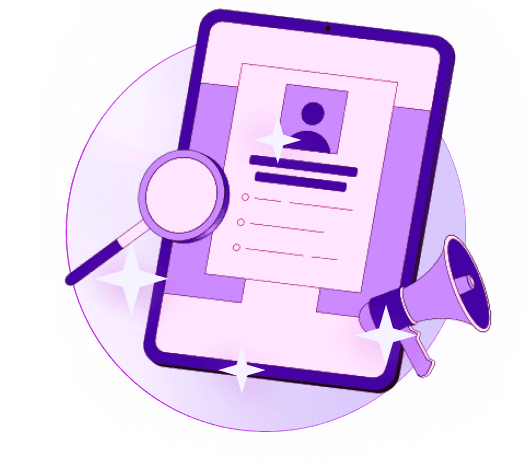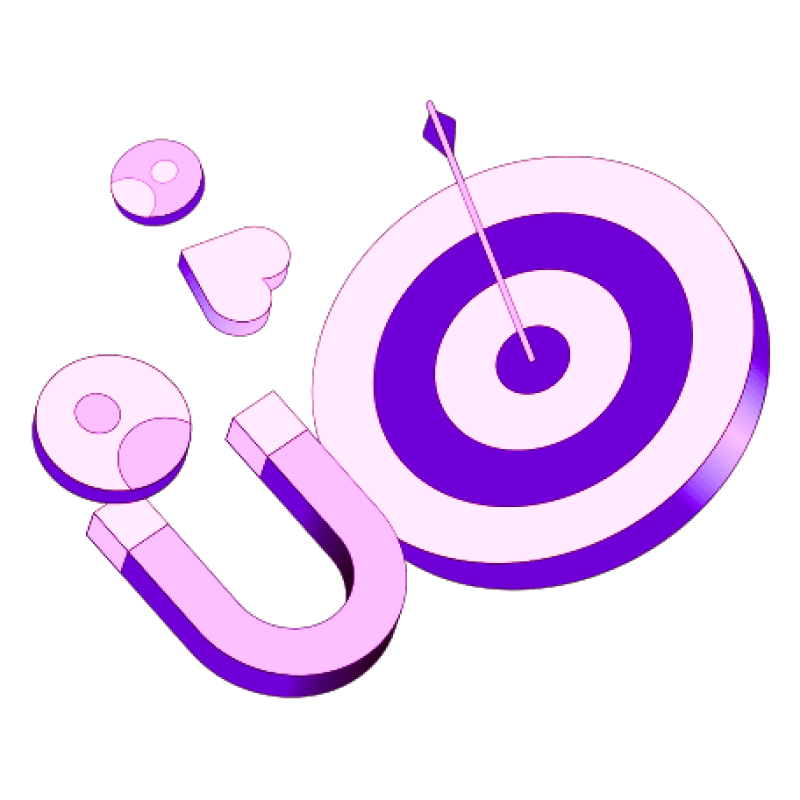Blogs
Articles


5 Effective Ways for Implementing AI in Sales to Boost Results
Did you know that 94% of executives are eager to integrate AI into their sales programs?
The implementation of AI in sales has shown remarkable results. Recent data shows 68% of employees who use generative AI serve their customers better. Companies that use AI-powered automation see a 30% increase in deal closures and 20% higher sales productivity.
This piece will explore five effective strategies to implement AI in sales that deliver real results. We'll skip the technical complexities and focus on practical ways to boost productivity, improve customer experiences, and drive more revenue.
What is artificial intelligence in sales?
Artificial intelligence in sales uses AI technologies that help sales teams work better, simplify the buyer's experience, and boost the overall customer experience. AI technologies are quickly changing how sales organizations operate. About 50% of senior-level sales and marketing professionals already use AI, and another 29% plan to adopt it soon.
Types of AI used in sales processes
Sales teams utilize several distinct AI technologies to change their operations:
Machine Learning – Analyzes historical sales data to improve predictive insights and identify patterns that human analysts might miss. This technology powers lead scoring, forecasting, and helps identify high-potential opportunities.
Natural Language Processing (NLP) – Systems understand, interpret, and generate human language with NLP. It analyzes customer interactions across channels to learn about prospect sentiment during conversations.
Conversational AI – Uses machine learning and natural language processing to mimic human interactions in multiple languages. This technology powers chatbots and virtual assistants that interact with customers, answer questions and collect valuable data.
Computer Vision – Computers derive insights from digital images, videos, and visual inputs, adding another dimension to customer understanding.
Predictive Analytics – Historical data combines with statistical algorithms to identify future outcome likelihood. Sales teams forecast performance, identify trends, and make data-driven decisions with this technology.
Generative AI – Creates new content like text, images, and more from simple prompts. Sales teams craft personalized emails, presentations, and other sales materials using this technology.
Predictive sales AI uses behavioral data to rank leads based on conversion likelihood. Additionally, generative AI has become mainstream - 100% of respondents in a recent study use the technology, up from 62% in 2024.
Benefits of AI in business and sales
AI in sales offers major advantages across multiple areas:
Better Efficiency and Time Savings Companies that use AI/ML capabilities see improvements in core business metrics, including revenue growth and operational efficiency. Sales professionals save one to five hours weekly when they use AI to automate manual tasks - about 64% report this benefit.
Better Data Analysis and Forecasting AI analyzes huge amounts of data to find patterns and insights that humans can't detect manually. About 73% of sales professionals say AI helps them discover insights they wouldn't find otherwise. This analytical capability enables precise sales forecasting and strategic planning.
Better Lead Generation and Qualification Sales teams identify and score potential leads more effectively with AI. AI algorithms analyze large data sets to identify ideal customer patterns and characteristics, making prospecting more accurate and faster. Companies using AI report 51% shorter sales cycles.
Personalized Customer Interactions AI creates personalized communication at scale effectively. About 69% of sales professionals believe AI helps personalize customer experience. AI analyzes customer data to tailor messages and content to individual priorities, which affects customer engagement significantly.
Smarter Decision-Making Live AI-enabled decision-making helps sales leaders understand effective strategies, needed improvements, and better customer targeting.
Revenue Growth The results speak for themselves. AI has boosted revenue for 47% of organizations. Companies investing in AI see 13-15% revenue increases and 10-20% sales ROI improvements.
These benefits cover the entire sales process. Companies utilize generative AI for automated customer service responses, ensure qualified leads reach sales reps, and provide personalized insights that improve sales effectiveness. About 78% of sales professionals say AI helps them spend more time on their role's most important parts.
Our research reveals that 83% of sales teams using AI saw revenue growth last year compared to just 66% of teams without AI. This clear difference shows why AI in sales has become necessary rather than optional for forward-thinking organizations.
1. Automate Repetitive Sales Tasks
Sales reps spend between 66-71% of their time on non-revenue-generating activities. Think about getting that time back to focus on what really counts: building relationships and closing deals. The first step to bringing AI into sales starts with the obvious target—those repetitive admin tasks that eat up selling time and drain productivity.
Using AI for CRM data entry
Manual data entry into CRM systems eats up most of sales teams' time. Sales reps spend about 5 hours each week just entering data. They could use this time to generate revenue instead.
AI-powered CRM solutions fix this problem by:
Capturing and organizing customer data from interactions automatically
Cutting down human errors in record-keeping
Processing and entering relevant information without manual work
To name just one example, see how AI tools analyze emails and meetings to log information automatically, which saves reps from updating each interaction by hand. Salesforce Einstein reads incoming emails and logs essential details like contact information, tasks, and follow-up reminders straight into the CRM.
HubSpot's AI searches the web for public information about contacts and companies to fill in missing fields automatically. This saves time and keeps customer data accurate through automated step-by-step processes.
Automating follow-up emails and scheduling
Numbers show that 80% of sales happen between 5 to 12 follow-ups. Sales teams don't deal very well with consistent follow-up sequences because they lack time. AI automation solves this challenge.
AI scheduling assistants cut down time by removing email back-and-forth. Atlassian saved 10 to 15 minutes per meeting after they started using an automated scheduling solution. Sales reps spend about 14.8% of their time scheduling meetings—around 6 hours weekly. This means substantial time savings.
Modern AI tools go beyond simple scheduling to:
Create individual-specific follow-up emails based on prospect behavior
Adjust for time zones automatically
Stop double-booking and calendar conflicts
Send reminders that reduce no-show rates
Companies using AI-powered scheduling tools cut no-show rates by 25%, which leads to higher revenue. Kronologic can schedule thousands of meetings without human help, letting sales teams focus on actual conversations instead of coordination.
AI systems look at prospect behavior like email opens and responses to pick the best time for reminders and the right tone. Salesmate connects scheduling with actual results by logging meetings, adding reminders, sending pre-call summaries, and updating pipelines automatically.
Reducing time spent on admin work
Research proves 64% of sales professionals save one to five hours weekly when they use AI to handle manual tasks [previous section]. Teams can now focus on valuable activities like building relationships and closing deals.
Sales professionals spend up to 40% of their time on non-sales activities. About 75% of sales reps say CRM data entry is their biggest headache.
AI tackles these challenges through:
Handling repetitive tasks like scheduling and reminders automatically
Smart task management and prioritization
Creating post-call summaries and follow-ups without manual work
Colby, a voice-first AI agent for Salesforce users, lets sales reps update their CRM by just talking. Reps speak to the AI, which updates contact records, creates tasks, adds call summaries, and sets reminders automatically.
Otter.ai's Sales Agent handles sales meeting transcription, finds useful insights, writes follow-up emails, and syncs notes directly to CRMs. After a meeting ends, it creates a summary, lists key points, and drafts a follow-up email ready to review and send.
2. Improve Lead Scoring and Qualification
Traditional lead scoring depends on subjective point systems that lack evidence-based precision. AI implementation in sales, especially for lead qualification, replaces guesswork with scientific analysis. Statistics show that 98% of sales teams using AI believe it highly improves lead prioritization.
How predictive sales AI ranks leads
Predictive sales AI transforms how we identify promising opportunities by analyzing patterns from past sales data. Traditional methods might arbitrarily assign 10 points for watching a demo or 5 points for attending a webinar. AI-powered lead scoring eliminates this subjectivity.
The process works through sophisticated algorithms that:
Get into historical sales data and past customer interactions
Identify patterns between won and lost deals
Apply these patterns to new leads with up-to-the-minute data
Learn and improve accuracy over time continuously
Behavioral data and conversion likelihood
AI lead scoring stands apart because it analyzes behavioral data to predict buying intent. Beyond simple demographics, AI examines digital engagement metrics that reveal up-to-the-minute prospect interest.
AI algorithms assess numerous behavioral signals, including:
Website activity—pages visited, time spent, feature comparisons
Content engagement—downloads, webinar attendance, case study views
Email interactions—open rates, click-throughs, response patterns
Purchase intent signals—pricing page visits, demo requests
Focusing on high-value prospects
AI implementation in sales excels at segmenting leads into actionable categories. AI systems typically classify prospects into three tiers:
Hot Leads: High-priority prospects showing strong purchase intent, requiring immediate response Warm Leads: Interested prospects who need additional nurturing Cold Leads: Low-engagement leads requiring long-term campaigns
This segmentation helps my sales team concentrate efforts on the most promising leads while marketing nurtures lower-priority prospects. AI goes beyond simple scoring by estimating each lead's long-term revenue potential through analyzing similar customer profiles.
The business effect of this precision is significant. Organizations using AI for lead qualification report shorter sales cycles, with some seeing their sales cycles reduced by 54%. AI lead scoring transforms big amounts of cross-platform inputs into applicable information.
AI calculates potential revenue contribution while identifying which leads to pursue. This helps sales teams prioritize prospects with the highest financial effect. AI might identify that leads from certain industries generate higher revenue over time and prioritize them for personalized outreach.
This approach creates value by unifying sales and marketing information. Both teams agree on which leads are worth pursuing with a shared, AI-powered scoring system. This improves cooperative efforts and coordination. Teams now have a common language to discuss leads through hard data rather than intuition.
AI implementation in sales for lead qualification becomes a compass that guides teams toward opportunities with the highest probability of success. This eliminates confusion between marketing and sales teams regarding lead quality.
3. Personalize Customer Interactions
Personalization has become essential in today's sales environment. 71% of consumers expect companies to deliver personalized interactions. Generic outreach no longer works in the digital age. AI in sales creates opportunities for meaningful one-to-one communications at scale.
Using AI to tailor sales messages
Sales personalization starts with a deeper understanding of your customers. AI technology has revolutionized this process. It analyzes vast amounts of customer data from multiple sources to create truly tailored messaging experiences.
AI analyzes several key data points:
Purchase history and browsing behavior
Social media interactions and content engagement
Demographic trends and behavioral patterns
Previous customer service interactions
Survey responses and feedback
This complete analysis helps AI spot patterns and priorities impossible to detect manually. About 73% of sales professionals say AI helps them learn about data they otherwise wouldn't find [previous section].
Advanced AI systems can identify specific pain points and motivations unique to each prospect, beyond simple demographic targeting. Healthcare software companies that use AI personalization can tailor messages to address specific hospital challenges. Long patient wait times or high readmission rates get targeted solutions instead of generic benefit statements.
Companies see substantial improvements after using AI for message personalization in sales. Research shows personalized communication gets much higher response rates than generic messages. About 69% of sales professionals say AI helps them personalize the customer experience [previous section].
Generative AI for personalized emails
Email remains a significant sales channel. Standing out in crowded inboxes needs more than adding a prospect's name to a template. Generative AI creates revolutionary opportunities here.
Sales technology now allows generative AI to craft unique emails for each prospect. These emails include:
Industry-specific language and terminology
References to recent company news or developments
Mentions of previous interactions with your business
Solutions to specific challenges the prospect faces
This level of personalization creates substantial results. Emails with personalized subject lines get 26% more opens. Segmented campaigns show a 760% increase in email revenue. These numbers show why AI has become essential for email personalization in sales.
Several platforms now use generative AI for sales communications. Autobound's AI technology looks at prospects' digital footprints—from LinkedIn posts to company news and podcast mentions. It turns these analytical insights into highly personalized email sequences.
Enhancing customer experience with AI insights
AI in sales does more than create personalized messages—it revolutionizes the entire customer experience through useful insights.
AI boosts customer experiences in several ways:
Anticipating customer needs based on usage patterns
Suggesting "next best actions" for sales representatives
Building complete customer views from multiple data sources
Analyzing past cases to recommend effective solutions
AI can predict why customers reach out before they explain their issue by looking at behavior data. Sales teams can prepare relevant solutions ahead of time, creating continuous interactions.
Predictive analytics helps sales teams understand subtle buying signals. AI recognizes intent signals when prospects compare pricing plans or read product FAQs. These signals might not be obvious to sales reps immediately. Up-to-the-minute data analysis ensures sales messages arrive at the perfect moment in the buying trip.
4. Enhance Sales Forecasting Accuracy
Sales forecasting remains one of the biggest challenges in sales management. Only 7% of sales organizations can achieve forecast accuracy of 90% or higher. Creating accurate forecasts has become harder now than it was three years ago, according to 67% of sales operations leaders. AI in sales provides a powerful solution to this ongoing challenge.
AI-driven predictive analytics for forecasting
Traditional forecasting methods heavily depend on human judgment, which brings bias and inconsistency. Modern AI-powered forecasting tools boost accuracy by analyzing huge amounts of data and spotting subtle patterns. Companies that use automated forecasting tools see their forecast accuracy improve by 20% or more compared to manual methods.
AI forecasting tools give several key advantages:
Spot risky deals before humans can
Give objective probability assessments based on activity patterns
Remove recency bias in forecasting
Analyze thousands of data points at once
The numbers speak for themselves. 83% of sales teams using AI saw revenue growth last year, while only 66% of teams without AI did. AI doesn't replace human judgment in forecasting—it makes it better by offering objective insights based on large-scale pattern recognition.
Each business model needs its own forecasting approach. Popular methods include pipeline stage forecasting, historical forecasting, time-series analysis, and AI-driven forecasting that uses machine learning to find patterns humans miss. The best results often come from mixing these approaches.
Identifying trends and seasonality
AI excels at finding complex patterns in consumer demand, seasonal changes, and economic factors. By processing big datasets from many sources—including sales records, customer interactions, and market data—AI spots recurring trends that humans would miss.
Detecting seasonality is a key strength of AI in sales. Retail businesses see spikes during holidays, while B2B companies might get more business at the start of fiscal years. AI models measure these seasonal patterns and help businesses prepare for changes ahead.
AI looks beyond internal data to assess economic indicators like inflation rates, employment statistics, and industry growth trends. This broader view helps predict how economic conditions might affect consumer spending. A good example is when economic data hints at a downturn—AI forecasts can show possible drops in certain product categories, letting sales teams adjust their pricing or promotional strategies.
AI can analyze many more factors than traditional forecasting methods. This helps it recognize even subtle seasonal patterns. AI models get better at handling changing demand patterns, market dynamics, and seasonal shifts as they learn from new data.
Making data-driven decisions
AI-powered forecasting speeds up decision-making in sales. Sales teams need quick, data-driven actions based on up-to-the-minute insights to stay relevant and get results.
Using AI in sales forecasting brings clear business benefits:
Better sales performance: AI finds sales trends, optimizes inventory, and boosts customer satisfaction
Smarter resource allocation: Companies plan sales more efficiently with accurate predictions
Better cash flow management: Knowing revenue trends helps maintain financial stability
Risk assessment: AI models show potential slow periods or missed opportunities
Most organizations achieve forecast accuracy between 70% and 79%. AI's ability to process vast amounts of structured and unstructured data objectively leads to much more accurate predictions.
These platforms help businesses collect, clean, transform, and analyze huge datasets to find valuable insights for informed decisions. AI analytics can group customers based on their behavior, priorities, and demographics, which helps sales teams customize their messaging.
AI in sales forecasting turns guesswork into science. Instead of old historical data, AI models analyze new information in real time to improve accuracy. This adaptability helps businesses respond to changes quickly and make smart decisions that drive revenue growth.
5. Enable Smarter Sales Coaching and Training
Nearly half of sales professionals say their companies don't give them the sales training they need to succeed. This gap creates a perfect chance to use AI in sales, especially to transform coaching and training programs that usually depend on managers' limited time.
Analyzing sales calls with AI
AI tools that monitor sales calls can boost conversions by a lot. They analyze conversations and give useful tips to improve performance. These systems convert calls to text, study speech patterns, sentiment, and ways to handle objections. Sales teams get detailed dashboards to track team performance, see individual scores, and get immediate analysis through reports.
These AI tools do more than just transcribe. They spot what works and showcase effective sales methods that help teams pitch better and tackle customer concerns. The AI acts like a virtual expert next to every rep, pointing out common objections and suggesting the best ways to handle them.
Identifying skill gaps and improvement areas
Traditional sales training used generic approaches that couldn't meet each seller's unique needs. AI changes this by creating learning paths tailored to each seller's needs and performance data.
AI coaching spots exact skill gaps through data analysis. To name just one example, it might notice that a rep "mentions pricing 40% less than top performers" or "calls end without next steps 60% of the time". The technology measures skills like question-asking, active listening, value explanation, and objection handling. This gives clear, evidence-based insights into areas needing improvement.
The coaching becomes relevant to the seller's current challenges right away. This focused approach works better than old methods. An Aberdeen study shows both quota achievement and win rates jump by double digits with good sales coaching.
Scaling personalized coaching
Before AI, coaching quality depended on the core team's skills, which varied widely between companies. Less than half of sales managers spend over 30 minutes each week coaching their reps. This creates a big training gap.
AI coaching solves this problem by offering:
Immediate AI feedback on content, tone, duration, speed, and key phrases
AI practice sessions for videos, handling objections, and conversation simulations
Automatic scoring based on key phrases and restricted words
Specific tips to improve after each interaction
This approach brings clear benefits to the entire sales team. Sellers get custom learning paths based on their skill gaps, consistent coaching, and quick feedback. Managers can coach more often and effectively while saving time. One expert puts it simply: "We help coaches do more. We give them solid data to spot where teams need to improve".
AI-powered sales coaching turns training from a rare event into an ongoing, evidence-based process that keeps building your team's skills.
Conclusion
AI technology has changed how sales teams work by improving results throughout the sales process. This piece explores five powerful AI strategies in sales that deliver measurable outcomes. Sales representatives save up to 7 hours weekly on administrative work through task automation that reduces errors. AI-powered lead scoring turns prospect identification from guesswork into science and helps teams target high-value opportunities with better conversion potential.
AI analysis of customer data makes personalization possible for every prospect interaction. Sales teams report substantially higher engagement rates and better customer satisfaction with this approach. AI-driven forecasting solves prediction accuracy challenges, and organizations achieve 20% or better improvements compared to traditional methods.
AI coaching identifies specific areas to improve based on actual performance data. Teams see double-digit improvements in quota attainment and win rates compared to traditional training methods.
Numbers tell the story clearly - 83% of sales teams using AI grew their revenue versus 66% of teams without it. Companies that wait to adopt these technologies risk falling behind competitors who gain efficiency advantages, deeper customer understanding, and better forecasting capabilities. Your sales process needs AI transformation.
Visit persana to find how our AI solutions can help your team automate tasks, improve lead scoring, create individual-specific experiences, extend forecasting, and enable smarter coaching.
Key Takeaways
Transform your sales performance with these five AI implementation strategies that deliver measurable results and competitive advantages.
• Automate repetitive tasks to reclaim 7+ hours weekly - AI handles CRM data entry, follow-up emails, and scheduling, freeing sales reps to focus on revenue-generating activities.
• Implement AI lead scoring for 79% higher conversion rates - Replace subjective scoring with predictive analytics that analyzes behavioral data to identify high-value prospects automatically.
• Personalize customer interactions at scale for 26% higher email open rates - Use generative AI to craft tailored messages based on prospect behavior, industry context, and buying signals.
• Enhance forecasting accuracy by 20% with predictive analytics - AI identifies trends, seasonality patterns, and risk factors that traditional methods miss, enabling better resource allocation.
• Scale personalized coaching with AI-powered skill gap analysis - Analyze sales calls to identify specific improvement areas and deliver targeted training that doubles quota attainment rates.


Create Your Free Persana Account Today
Join 5000+ GTM leaders who are using Persana for their outbound needs.
How Persana increases your sales results
One of the most effective ways to ensure sales cycle consistency is by using AI-driven automation. A solution like Persana, and its AI SDR - Nia, helps you streamline significant parts of your sales process, including prospecting, outreach personalization, and follow-up.

